Human civilization can thrive while living within sensible limits imposed by a finite system. “Renegade" economist Kate Raworth manages to tell the truth about what we’re getting wrong in economics, while at the same time inspiring activism and optimism. In this conclusion of a two-part interview, Kate finishes her list of seven fundamentals to achieving a healthy 21st century economy. Her recently published book, Doughnut Economics: Seven Ways to Think Like a 21st-Century Economist, was called “brilliant, thrilling and revolutionary”…
Category Archives Podcasts
Award-winning scientist Dr. Guy McPherson has concluded that for human civilization, the end is near. He advises the rate of change of our climate is increasing far more rapidly than we are being told, and this puts us on his endangered species list. In this 2017 interview, McPherson reveals why the International Panel on Climate Change, and even many individual scientists, understate the problem. He critiques our modern “living arrangement,” and the lies our culture promulgates to avoid admitting, “We…
Re-establishing our personal relationship with food and ending our role as commodity “consumers” is part of a healing, regenerative process. It’s a part of our natural evolution, according to Michael Brownlee, author of The Local Food Revolution: How Humanity Will Feed Itself in Uncertain Times. In this conclusion of a two-part conversation, Brownlee shares why food is sacred, and what is needed to accelerate relocalization of our food supply. He also explains what we’ve lost in the commoditization of food,…
A scaled-up local food system may be the only way we can feed ourselves as we weather the storm of climate change. Until now, CSAs, urban gardens and farmer’s markets have been the face of the local food movement. But Michael Brownlee, author of The Local Food Revolution: How Humanity Will Feed Itself in Uncertain Times, tells us this is not nearly enough. In this episode, the first of a two-part conversation, Brownlee shares how global industrial agriculture is failing…
100 real-world actions happening now have the potential to bring greenhouse gases back down to a level that won’t cause humans to join the ranks of the dodo and other extinct species. They just need to be scaled up. That’s the conclusion of environmentalist and entrepreneur Paul Hawken and the team of researchers, scientists, business people and political leaders he assembled for Project Drawdown. The team spent several years cataloging and modeling feasible, real-world carbon-reducing actions. They analyzed existing technological,…
Most scientists agree the current level of human population, in combination with present living arrangements, is damaging our ecosystems. But doing something about overpopulation is not high on public policy lists. It’s rarely discussed in the media or over coffee with friends. Why? Population Media Center President Bill Ryerson discusses the obstacles preventing faster progress on solving the overpopulation problem, or even admitting there is one. This is the second part of an April 2017 interview. Bill Ryerson has worked…
World population passed the 7.5 billion mark in the Spring of 2017, and it could rise to 11 billion by the turn of the century. We currently add over 200,000 to the population every day. If fertility rates don't continue to drop, and we don’t suffer a “massive die-off,” that figure could be closer to 30 billion. Population Media Center President Bill Ryerson corrects misconceptions, debunks myths, and shares a variety of surprising facts about overpopulation, population growth, fertility rates and human…
What exactly are “think tanks” supposed to be thinking about? Are some of them part of a campaign to cast doubt on science when it could interfere with profits? Author Kerryn Higgs recounted the growth-seeking activities of the corporate world in her book, Collision Course: Endless Growth on a Finite Planet. Her research reveals think tanks, industry associations, and even university economics departments all play a role in advancing and preserving our society’s commitment to growth above all else, even…
How and why did our society come to value economic growth so highly that we pursue it at the risk of our long-term survival? For some time scientists have warned that human civilization is living beyond the ecological means of our planet. Yet our commitment to economic growth is unwavering. Australian writer Kerryn Higgs chronicled this triumph of denial over science in her book, Collision Course: Endless Growth on a Finite Planet. This book is impressively researched. She shares her…
We need to change the way we think if we want to extend the shelf-life of our civilization, according to Frances Moore Lappé, author of EcoMind: Changing the Way We Think and Diet for a Small Planet. In this 2017 conversation, Lappé explains some of the “thought traps” to avoid in order to effectively inspire transition from what she calls our “economy of destruction.” She also explains how democracy is much more than just a form of government; it is…

